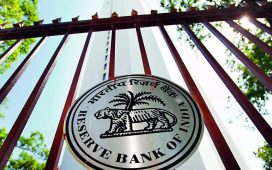It’s the solution that’s set to save lives and the NHS over £1billion a year. Artificial intelligence technology developed by UK group Deep Medical (DM) predicts outpatient no-shows and short notice cancellations while offering backup appointments so clinics can operate at full capacity and there’s fair access to care.
As rollout of its novel systems increases, this year the company, co-founded in 2021 by data science engineer David Hanbury and former NHS doctor Benyamin Deldar, plans to raise £30m in a first round of venture capital funding to scale growth domestically and in the US.
“No-shows are more than simple forgetfulness,” they explain. “Patients may be grappling with work and have caring responsibilities or transport issues. Those from minority and marginalized communities are disproportionately affected. We put an end to blanket reminders against a static picture of capacity. Our technology analyses how we behave in relation to our own health. It identifies those most at risk and aligns the clinical workforce with patient demand and a deep understanding of people’s circumstances so a personalised care model is possible.
“For frail and vulnerable groups someone from the hospital or GP comes to them and performs an assessment. Dermatology is another area where different factors apply. Rashes clear up but that’s not always communicated and often families under pressure with young children are involved.”
Against a backdrop of 5.8 million people on outpatient wait lists, the company is highly aware of the rules and sensitivities around personal information. Using only anonymised data and algorithms, throughout DM’s mission to increase efficiency and expand treatment numbers no-one’s full identity was needed to build its models.
“We protect and respect people’s data while building ethically conscious AI that powers equitable and ethical uses of the technology,” stresses Hanbury.
Employing 20 and operating its own in-house IT team, DM has links to the cream of UK scientific talent in universities such as UCL and Oxford.
Following a recently completed a successful pilot for the NHS in Essex, it is now being rolled out across 12 more hospitals this year. National take-up has the potential to deliver a £30 return for every £1 spent.
“We’re the integrated intel inside booking and engagement platforms, we understand how exhausted healthcare people are with multiple applications and screens,” says Hanbury. “Our scheduling solution is set to relieve up to 150,000 appointments in one NHS trust alone which equates to releasing £28million of funded capacity.”
After receiving £2.5million of seed investment, the company, one of a kind in the UK, is forecasting a £4.8million turnover for 2025/26 and is partnering with three tech multinationals including Cisco.
Its cloud-based Webex secure, scalable solutions enable actions such as video meetings, calling and messaging so problems such as transport can be dealt with.
DM has also benefitted from Dr Deldar being a member of the pioneering NHS Clinical Entrepreneur Programme which helps staff develop commercial skills so they can transform healthcare and stay within the service.
And with the issue of no-shows cropping up in a wide array of industries, there’s further applications for DM’s predictive innovations. Potential sectors include education and pupil non-attendance, airports and air travel as well as the courts’ caseloads.
“But tech isn’t always the answer,” Hanbury and Deldar are keen to point out. “The win-wins for our times are people-centred solutions that save everyone money.”










